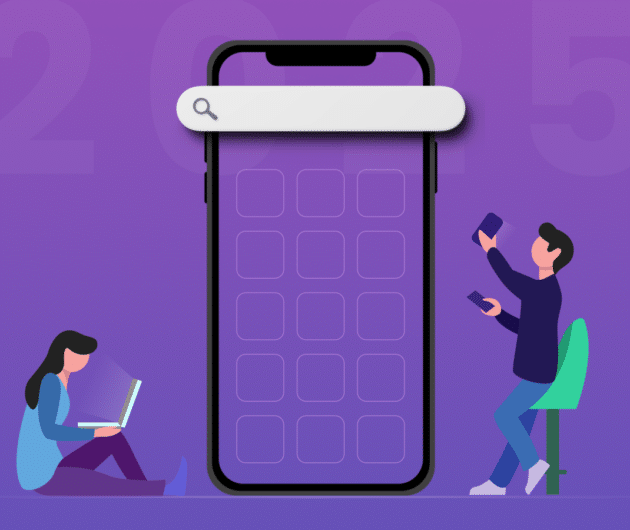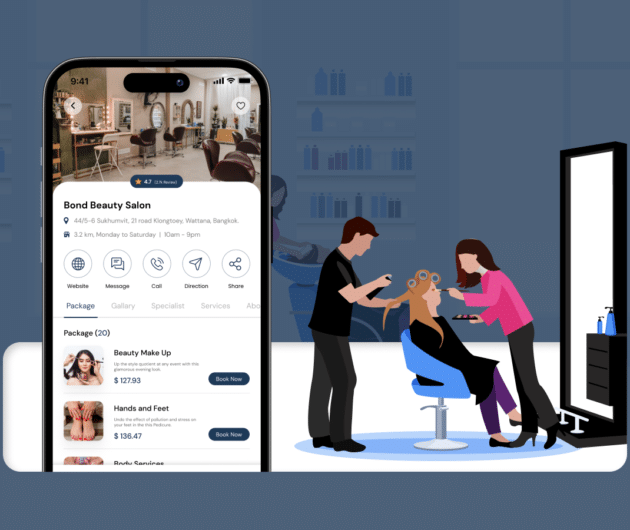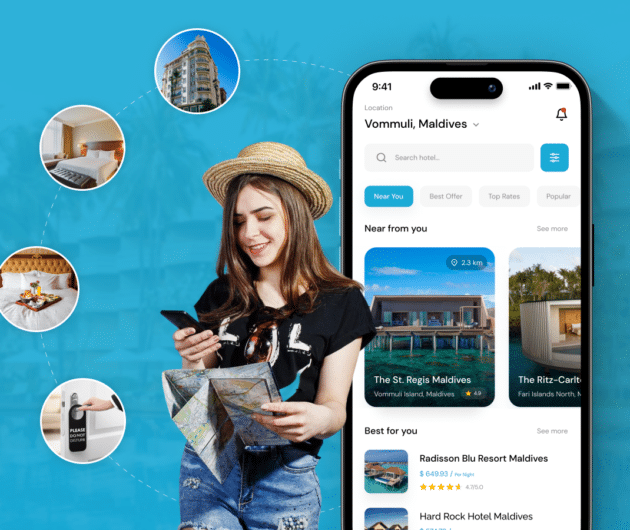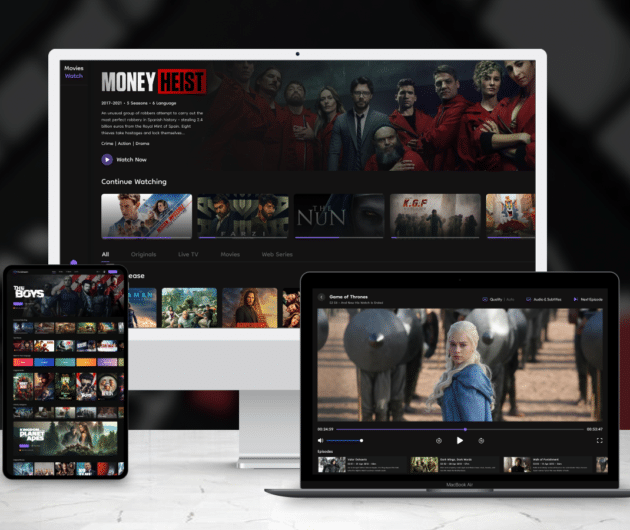Native vs Hybrid vs Cross Platform: Choose Best for App Development
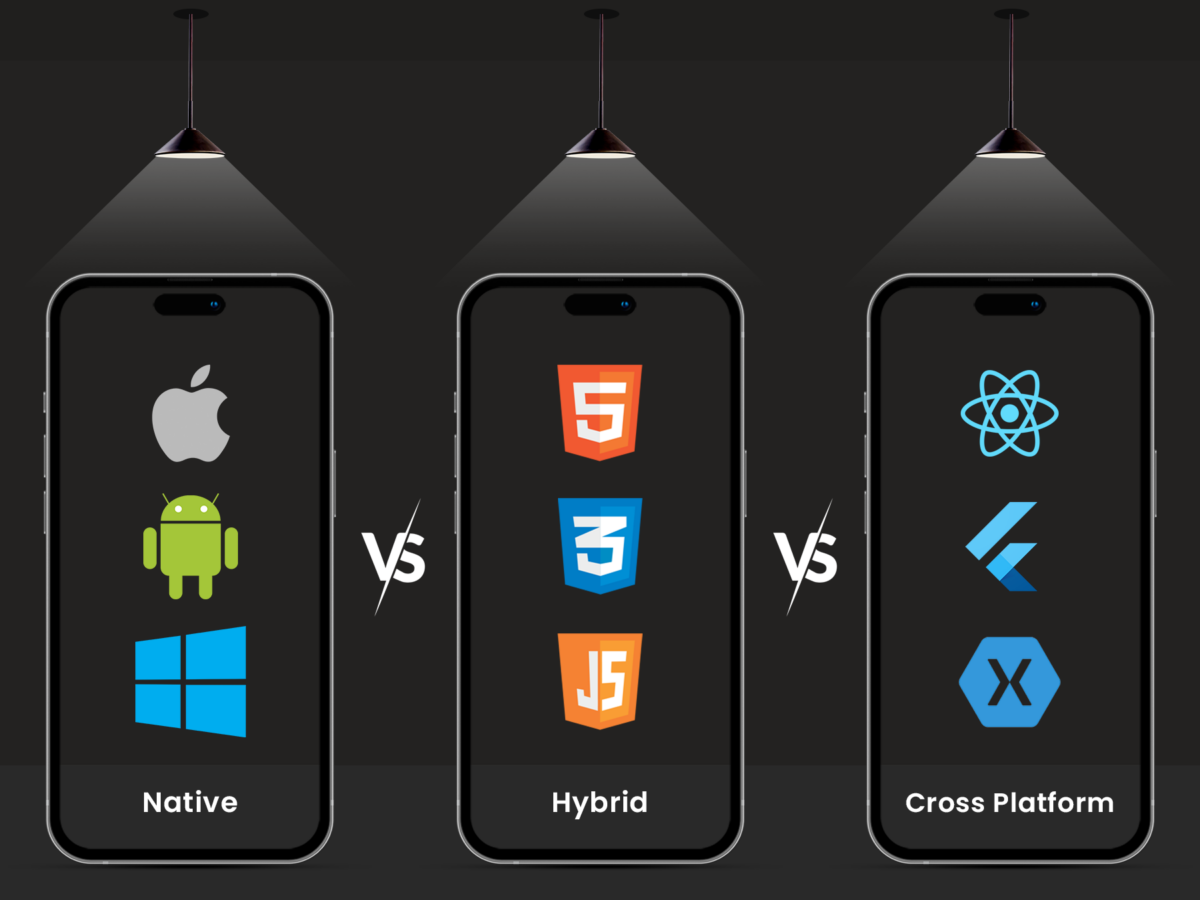
-
Ankit Patel
- March 20, 2023
- 6 min read
Technology has brought about a major shift in the way businesses operate. It becomes quite imperative for them to make their presence felt. This in turn makes it critical for them to build apps that can allow them to achieve this without any form of difficulty whatsoever.
According to Statista, the revenues generated from mobile apps would become $613 billion by 2025. These valuations make it crucial for entrepreneurs to focus on quality, functionalities, etc so that customer engagement remains at the top. This in turn makes it relevant for them to choose the best development approach followed by an ideal platform.
Currently, if we talk about the approaches that are quite popular, they are native, hybrid, and cross-platform app development.
In this blog, we will discuss these types in detail explaining their pros and cons, followed by the use cases when they can be used.
What is a Native App?
A native application is a software program built for use on a specific platform or device.
The concept of native apps revolves around the creation of a solution that can only run on a particular device or OS- like Android, iOS, etc. This in the end ensures the achievement of the following:
- Higher user engagement
- Better performance
- Enhanced appearance
Here we need to make note that in contrast to websites or web apps, these apps cannot operate within the browser. They require downloads from respective app marketplaces like Google Play Store or Apple App Store.
Now that we have a perspective on the concept, let us understand how its development is done. So, in a situation wherein you are developing an Android app, you can use Java or Kotlin. On the other hand, if you develop iOS app, you can use Swift and Objective-C.
If you want to deliver the best user experience in terms of the appearance and feel of the application, native app development is the perfect option to choose.
# Popular Native App Examples
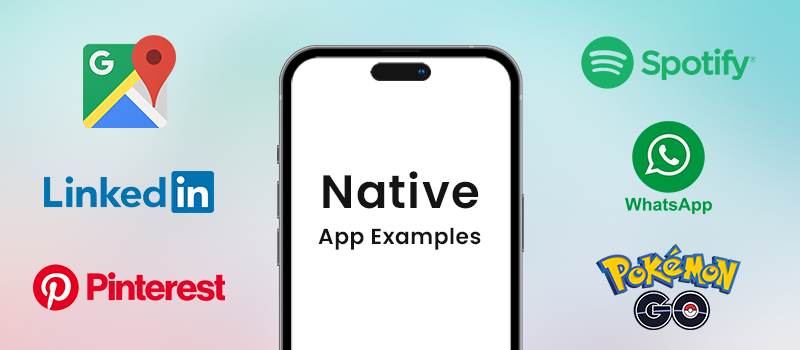
- Google maps
- Spotify
- Pokemon Go
# Pros of Native App Development
Check out this image to get a glance through some of the pros associated with using the approach of native app development.
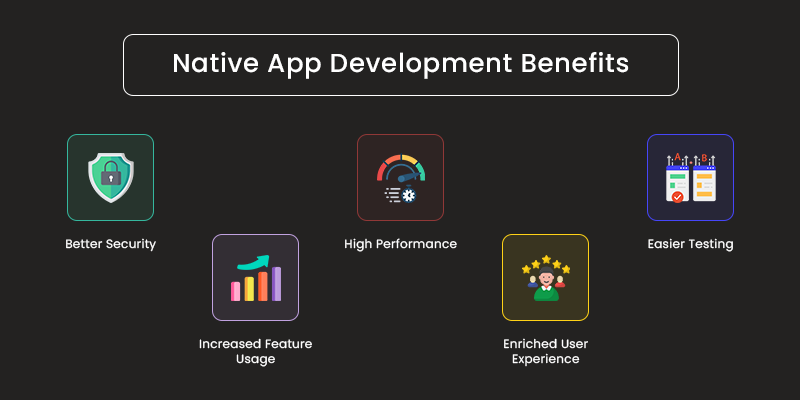
- Provides flexibility of the app earning more usage of different features. This is, as a result of the level of interactivity being possible with the device’s database system, camera GPS, etc.
- Native applications run much faster. Due to the app’s design being made in a way wherein it is only operable on one platform hence the speed of loading remains high and in the end, ensures that the performance is unparalleled.
- Receiving protection from different layers of OS; data remains encrypted. This protects the app from different security issues.
- Enhances the UI/UX due to the app’s development utilizing practices for enhancing the design.
- With native app development adopting an approach wherein development is done for one platform, hence testing is easier to perform.
# Cons of Native App Development
Take a peek at the image here to glance through the cons of native app development to understand when it is not suggested to use this approach.
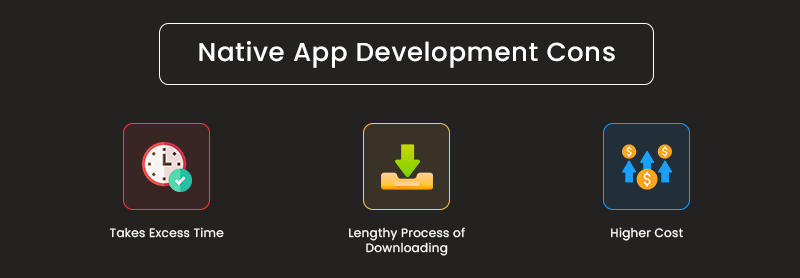
As you can observe in the image, there are three main cons related to using native app development.
- Development takes a lot due to code being difficult to reuse.
- Costs more as it demands the creation of separate apps for different platforms – iOS, and Android.
- Downloading the app is an extremely lengthy process.
# Tools for Native App Development
Android App Development Tools:
- Android Studio
- IntelliJ IDEA
- Android IDE
- Android SDK
iOS App Development Tools:
- XCode
- AppCode
- Code Runner
- Fabric
Read Also: Top 10 Mobile App Development Tools to Build a Robust App
# Use Cases for Native App Development
- If you want code specifically for one platform.
- In case you wish to make an app with high complexity.
- If you want to deliver an app that has a standout UI/UX.
- If your business is concentrating on the development of 3D games.
What is Hybrid App Development?
A hybrid app is a solution that combines features inherent in native and web apps. In extremely simple words, they are a blend of both native and web solutions.
Written using web technologies like HTML, CSS, and JavaScript, and through the code being embedded into the native app wrapper using Apache Cordova it becomes easy to load the app. Therefore, it becomes easy to create and publish them.
# Popular Hybrid Apps Examples
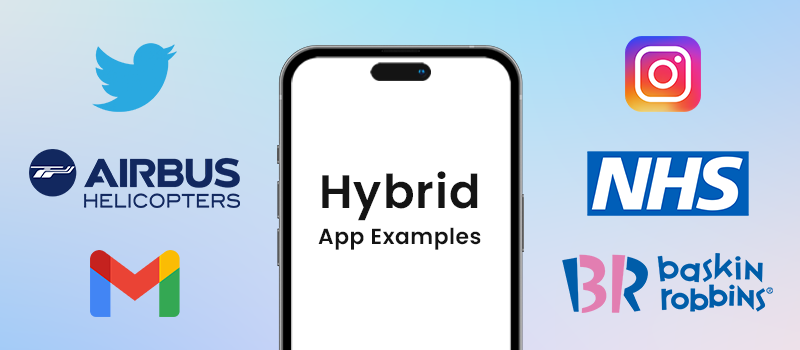
- Gmail
- NHS
- Airbus Helicopters
- Baskin Robbins
# Pros and Cons of Hybrid Apps
The concept of hybrid app development implies the creation of a solution that can easily run as a native and a web app. Therefore, its appearance is like a website within the browser you may be operating or like an app that you install.
So in case you wish to build a hybrid app, it is important that you first be aware of the different pros and cons related to using this approach.
Hybrid App Development Pros:
- Costs 30% less than native app development as it demands the creation of only one project for both Android and iOS.
- Saves time as developers need to work with one single codebase for handling the app development for iOS and Android platforms. This follows by ensuring that the mobile app development frameworks can reuse a big portion of it. This is to accelerate the pace of development.
- Easy Maintenance
Hybrid App Development Cons:
- Is difficult for developers to include support for new features which may get introduced by different OS like Android or iOS.
- Makes it challenging to create visually-appealing graphics or include attractive 3D elements within the app.
- Chances of functionality limitations are more due to hybrid frameworks like PhoneGap lacking the support necessary to provide for the native feature.
- Hybrid apps do not offer offline support
# Hybrid App Development Tools
- Ionic
- Apache Cordova
- Visual Studio
# Use Cases for Hybrid App Development
- In case you want to develop an app compatible across multiple platforms like iOS or Android.
- If you lack specialized knowledge in coding or different programming languages.
- In a situation wherein you have a limited budget and do not wish to create an API.
What is a Cross Platform App?
Cross-platform app development is the process of building an app that can run on different platforms like Android, iOS, etc.
This is through tools and frameworks that make the app easy to function across devices like Android and iOS.
# Popular Cross-platform Apps Examples
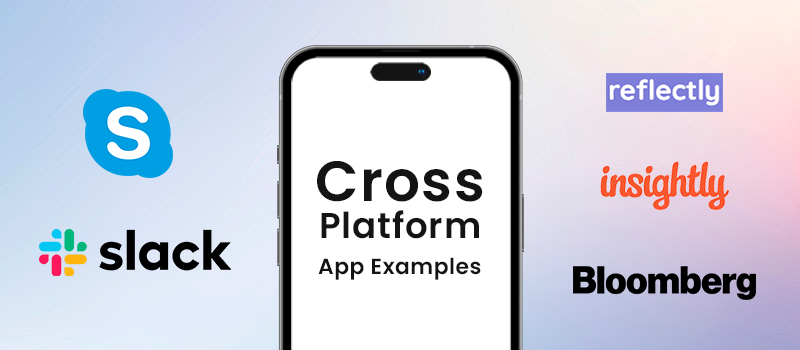
- Bloomberg
- Skype
- Insightly
- Slack
- Reflectly
# Cross-Platform Apps Benefits
- Due to the approach demanding developers to use one codebase for handling iOS and Android, it limits the demand for building separate apps for these platforms.
- Hassle-free and quicker app development
- As a result of the platform sharing the same codebase, it becomes easy to build a unique brand identity with less effort.
# Cross-Platform Apps Cons
- Chances of integration issues with target OS.
- Probability of spending more on the compiled code, thereby making the app size go double. This affects the app’s performance.
- There is a probability the app may get rejected on app marketplaces like the Google Play Store and the Apple App Store.
# Cross-Platform App Development Frameworks
- Flutter
- React Native
- Xamarin
- Ionic
# Use Cases for Cross-Platform App Development
- If you have a limited budget and time and wish to build an app for different platforms.
- When your target audience is both Android & iOS users.
- If the case of faster app development is your priority.
- In case the application you are creating does not involve complex logic.
- In case you want to create an MVP.
Read Also: Why Should You Go For Cross-Platform to Develop Mobile App?
Native vs Hybrid vs Cross-Platform: Which One to Choose?
Let us get a perspective into which platform is better among the three and how the choice formulation is to be done.
• Performance
If you want to deliver a supreme experience to your end users, then the native app development approach is what you should opt for. This will make memory management, network management, etc. easy to perform. It will alternatively also enhance the overall app performance.
• Budget
Albeit this being an area of concern, it is to be noted here that in case you are a startup with a limited budget, you can not opt for native app development. Cross-platform app development is the best option here because it allows developers to write a single codebase for Android and iOS.

• Time to Market
When we compare native vs hybrid vs cross-platform app development, the first takes a lot of time for development. The second and third on the other hand ensure that the development takes place at a lesser time thereby ensuring the app is marketed faster.
• UI/UX
With user expectations driven towards a solution that delivers a rich user experience, therefore if you are considering an approach that can make this possible then a native app development approach is what you should opt for. This is due to the superior UI capabilities it has alongside easy-to-customize.
• Market Reach
If you want more customers to know about you, then developing cross-platform apps or hybrid apps is a winning approach. Because more users will get enlightened about you and the services you provide. Also, different obstacles related to multiple platforms get mitigated completely.
Hence, in short, one app covers all your development-related tasks thereby ensuring your solution is easy to run across different platforms.
• Functionality
When performing a comparison between native, hybrid, and cross-platform app development approaches, it is important to place focus on this aspect. In other words, if you want users to enjoy functionalities like cameras, GPS sensors, etc. the native approach is what you should opt for. This is because the other two approaches will make their implementation difficult.
Simultaneously due to the code in native implementing sensors whenever developers may be needing it, therefore users can operate the app without any difficulty.
Wrapping up
In this article, we explained everything you need to know about the differences between native vs hybrid vs cross-platform app development. Choosing between native, cross-platform, and hybrid for mobile app development totally depends on your budget, timeline, target audience, and goals of your project.
If you are still unclear about which type of mobile application would be the best for your business, get in touch with our experts. We will guide you in choosing the right mobile app development platform that will surely fulfill all your needs.
You may also like
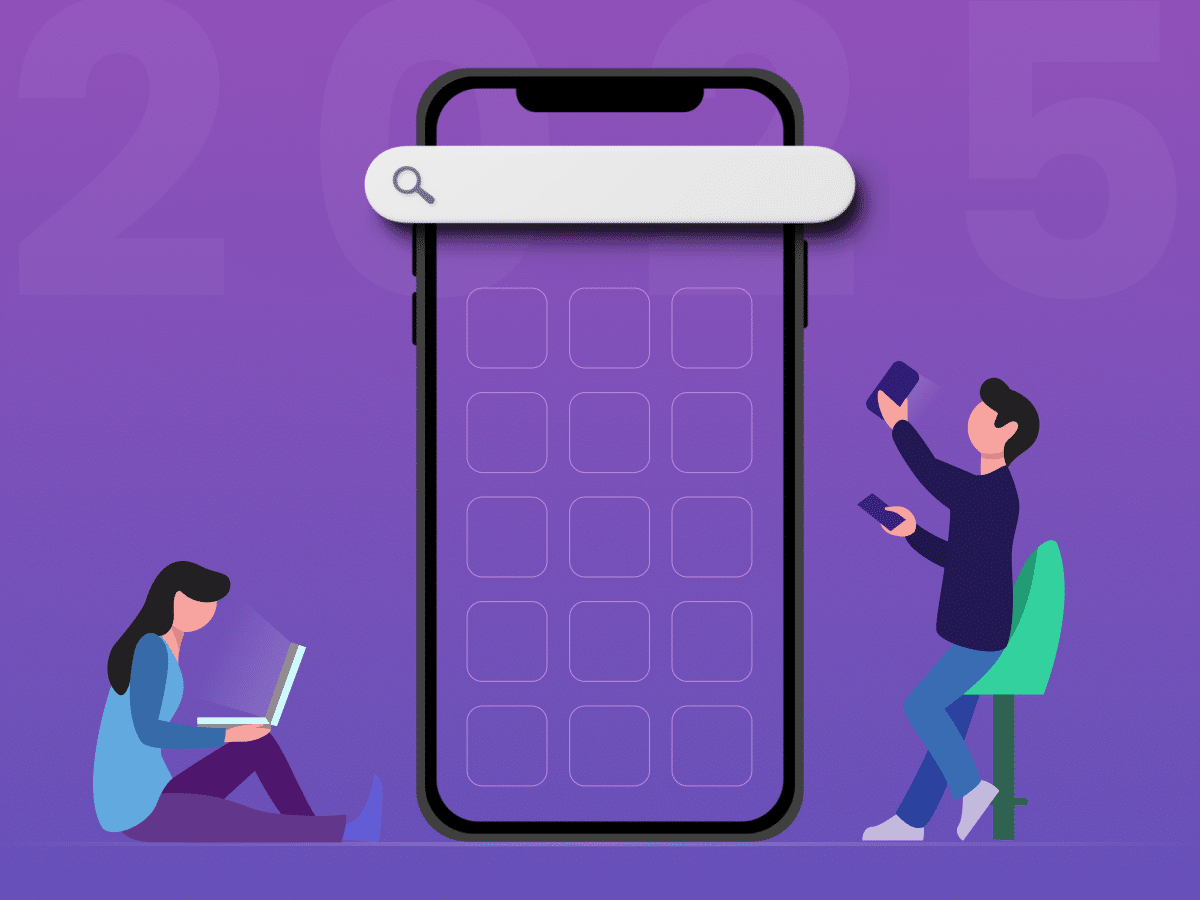
How to Choose the Right Mobile App Development Company
-
Ankit Patel
Imagine this: you’ve got a brilliant app idea that could revolutionize your business, take it to new heights, and transform your entire customer experience. But without the right team to… Read More
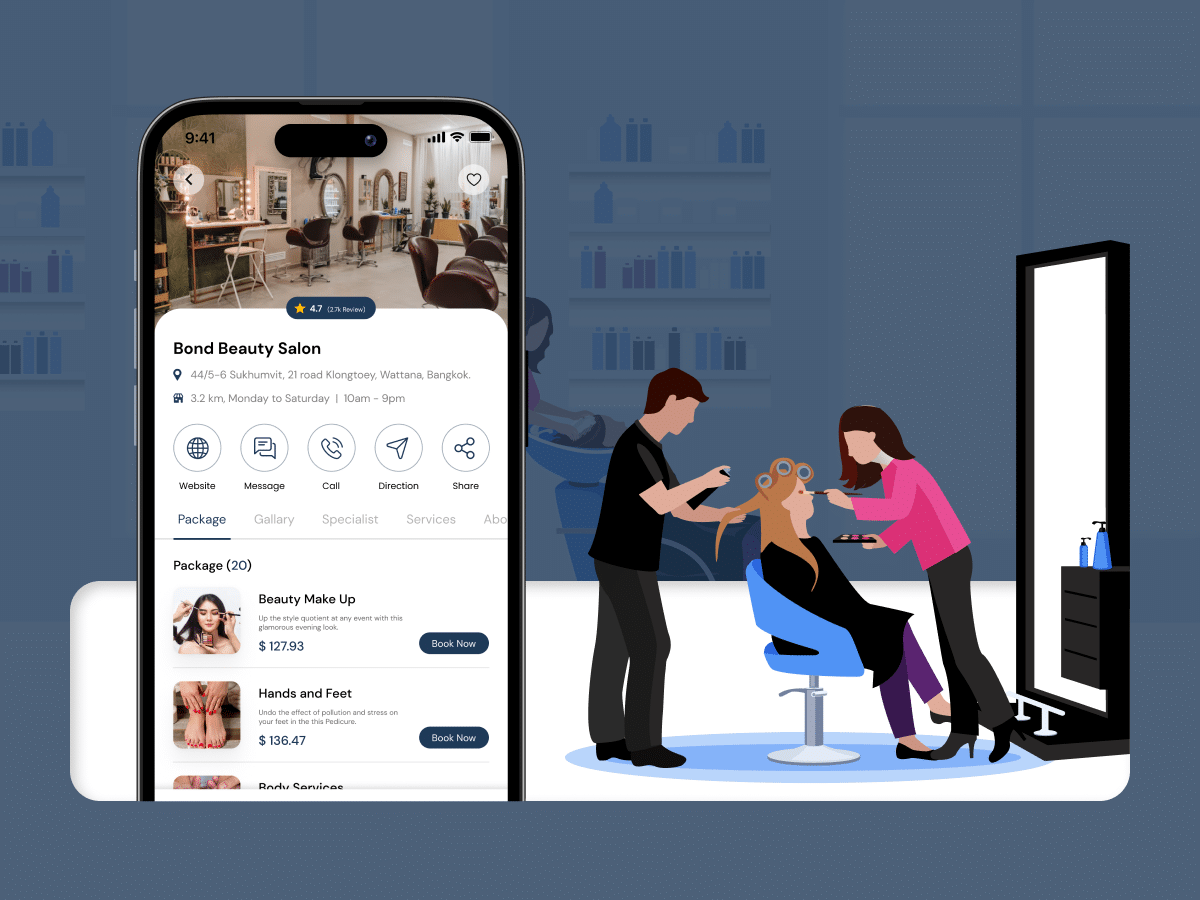
How Much Does it Cost to Build a Salon Booking App like Fresha?
-
Ankit Patel
We all have witnessed the buzz in the world of beauty & wellness, and it’s booming every day thanks to the fast-paced and stressful lifestyle. In an era where time… Read More
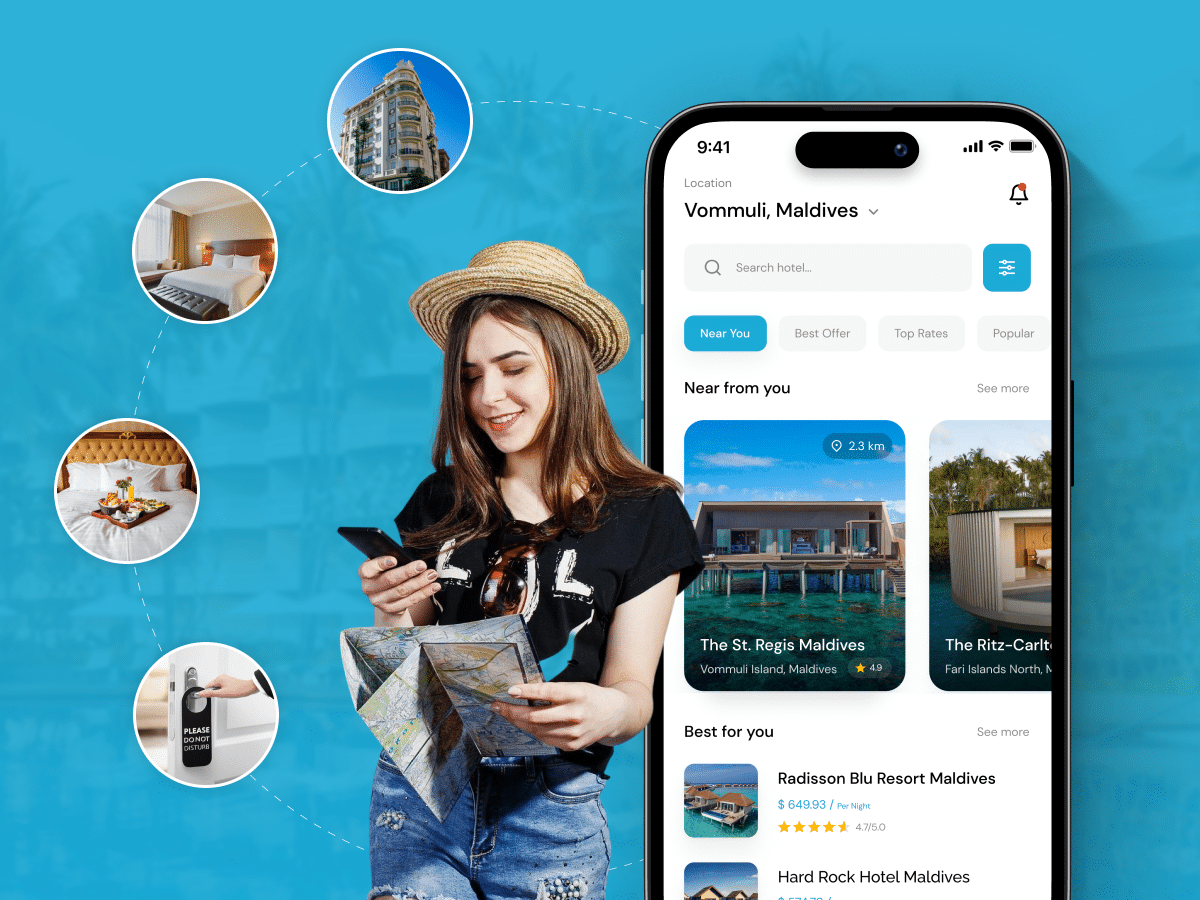
A Complete Guide to Hotel Booking App Development With Cost
-
Ankit Patel
Whether it’s a corporate business trip or a relaxing vacation with friends, finding the right hotel at the right time and a seamless hotel booking experience is not a luxury… Read More

